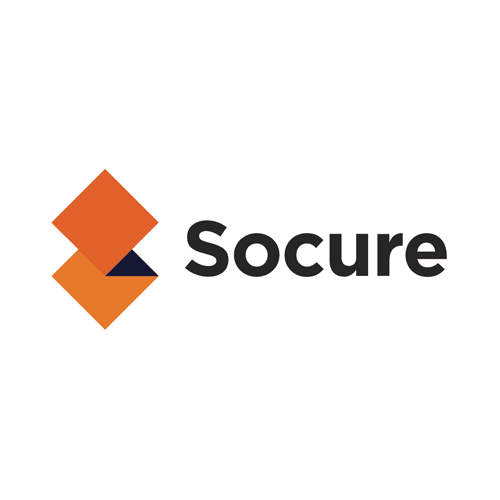
Socure
Socure is the leading platform for digital identity verification and trust. Its predictive analytics platform combines the newest forms of machine learning and artificial intelligence with all elements of a consumer’s identity to deliver the most accurate and robust KYC, identity verification, and fraud risk prediction solutions in the market.
Fraud Solution Profile
Socure’s ID+ is a real-time predictive analytics platform that combines the newest forms of machine learning and artificial intelligence with all dimensions of a consumer’s identity to deliver the most accurate and robust KYC, identity verification, and fraud risk prediction solutions in the industry.
Socure Sigma Identity Fraud provides the most accurate identity fraud solution in the industry, analyzing every dimension of consumer identity through a single ML model. Sigma Identity maximizes auto-approvals, minimizes both fraud risk and false positives, and allows you to streamline risk operations. Sigma Identity analyzes every dimension of consumer identity—name, email, phone, address, date of birth, SSN, IP, device, velocity, network and behavioral intelligence, and more—in a single ML model. Sigma Identity captures 85%-90% of fraud in the top 3% of riskiest users and reduces false positives by more than 13X compared to legacy solutions.
Socure Sigma Synthetic Fraud uses machine learning trained with consortium data from the largest financial institutions to predict synthetic identity fraud. Sigma Synthetic is purpose-built to tackle targeted fake, randomized and synthetic patterns to produce highly accurate real-time actionable reason codes and risk scores. Sigma Synthetic achieves an average AUC of 97.44% with a synthetic capture rate as high as 90% in the top 3% of riskiest users.
Socure Predictive DocV is the leading solution that enables growth-minded businesses to verify new customers quickly by securely checking the authenticity of IDs and biometrically matching a selfie to the ID photo. It provides confidence in who those companies are doing business with, and reduces their risk of fraud with 99% accuracy. By taking advantage of automated machine learning, companies are able to leave friction-filled manual processes and customer abandonment behind. Deep forensic analysis prevents forgeries and the latest NIST-certified, passive liveness detection prevents spoofing attacks.
Socure Sigma Device predicts risk associated with a device using data attributes such as IP, geolocation, device type, and device software. Sigma Device is the first application fraud solution that “binds” a device to the individual using the device. Socure Device combines explicit user input data (DOB, email, phone) and implicit information from the device (IP, device, behavior) at the digital entry point to deliver superior identity verification and fraud classification at onboarding and throughout the account lifecycle. Sigma Device can be deployed standalone or in conjunction with Sigma Identity Fraud.
Socure Email, Phone, and Address RiskScore products provide risk checks to mitigate fraud based on email, phone, or address signals for opening and managing digital accounts. The email, phone number, or physical address linked with a user’s name is evaluated based on prior history and patterns using advanced analytics. Socure RiskScores answer two key questions, “How likely is the email, phone, or address to be associated with fraud?” and “How likely is the email address, phone number, or physical address associated with the user?” RiskScores identifies between 38% and 64% of fraud with good to bad ratios of 4:1 to 7:1 within the riskiest 3%.
Citi
CapitalOne
Wells Fargo
Public.com
Chime
Ecommerce, Financial Services, Insurance, Telecom
Identity & Authentication
Account Takeover, KYC & AML, Loyalty or Promo Abuse, New Account Fraud, Payment Fraud, Synthetic Identity Fraud
Behavioral Biometrics, Biometrics, Machine Learning
